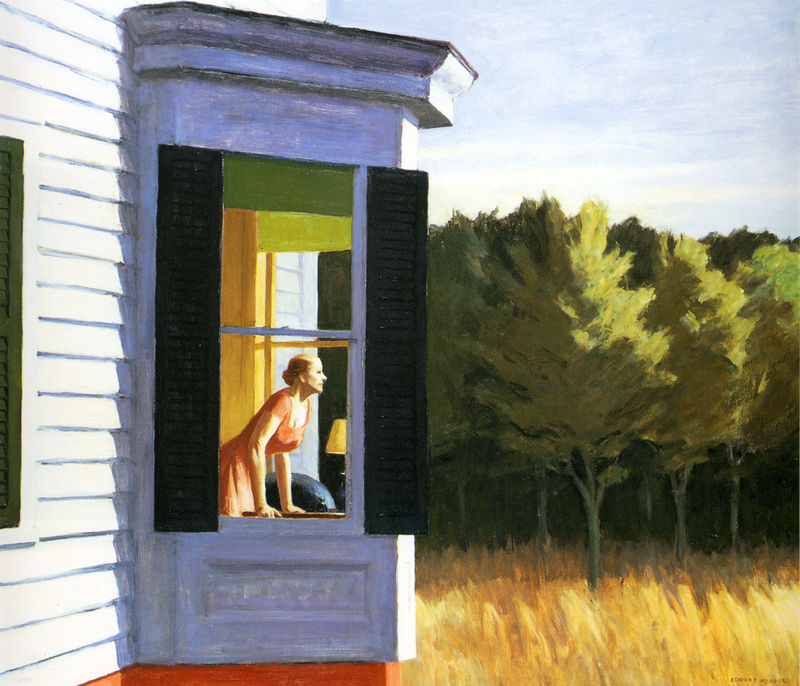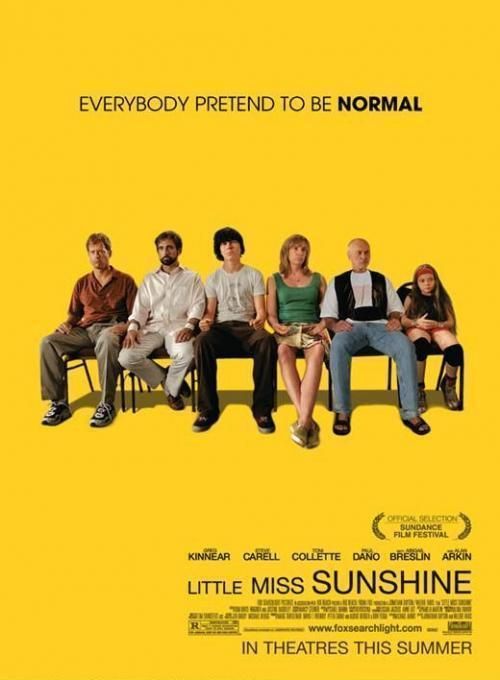_Painting_
This picture represent a woman in her house who look forward the window. I think she look forward the window everday at the same moments because, her husband is an U.S. soldier and he went to France for the second world war, and the woman hopes to see again her husband after the war. But the war is finished, her husband has still not returned and nobody told to her some news about her husband.

_Edward Hopper_
biography
 Edward Hopper 1882-1967, American painter and engraver, b. Nyack, N.Y., studied in New York City with Robert Henri . Hopper lived in France for a year but was little influenced by the artistic currents there. His early paintings had slight success; he gained a reputation, however, through his etchings, which remain popular. The first one-man show of his paintings was held in 1920. Hopper excelled in creating realistic pictures of clear-cut, sunlit streets and houses, often without figures. In his paintings there is a frequent atmosphere of loneliness, an almost menacing starkness, and a clear sense of time of day or night. His work in oil and watercolor is slowly and carefully painted, with light and shade used for pattern rather than for modeling. Hopper is represented in many leading American museums. Early Sunday Morning (1930; Whitney Museum, N.Y.C.) and Nighthawks (1942; Art Institute of Chicago) are characteristic oils.
Edward Hopper 1882-1967, American painter and engraver, b. Nyack, N.Y., studied in New York City with Robert Henri . Hopper lived in France for a year but was little influenced by the artistic currents there. His early paintings had slight success; he gained a reputation, however, through his etchings, which remain popular. The first one-man show of his paintings was held in 1920. Hopper excelled in creating realistic pictures of clear-cut, sunlit streets and houses, often without figures. In his paintings there is a frequent atmosphere of loneliness, an almost menacing starkness, and a clear sense of time of day or night. His work in oil and watercolor is slowly and carefully painted, with light and shade used for pattern rather than for modeling. Hopper is represented in many leading American museums. Early Sunday Morning (1930; Whitney Museum, N.Y.C.) and Nighthawks (1942; Art Institute of Chicago) are characteristic oils.
Perfect biography about Edward Hopper here!
Little Miss Sunshine The little Miss sunshine is

Little Miss Sunshine
The little Miss sunshine is a fashion parade for pretty young girls.
The heroine who named Olive, is select to participate at the Little Miss Sunshine's final who it takes place in California.
All the Olive's family travel from New Mexico to California in a yellow van but everybody are very special : her father has a bad job's situation, her mother is too nice, her big brother don't speak because he hates people and he wants to become an Airforce's pilot, her uncle is gay and he is a teacher about Marcel Proust and the grandfather takes heroin.Lot of episode disturb their travel but Olive can achieve her dream...
I think that is my favourite film because the story is too easy and the context is shift compared the american thinks. Little Miss Sunshine is very funny and the caracter are very attaching.
I advice to you to watch his film, you will not regrt it !
Sorry ! but i didn't find the video in english
_Film_
Stranger than fiction
The film start in the space. The camera make a big zoom from the space to a bloc of flats. it goes forward a window and it arrive in a bedroom.
The bedroom is faintly lit and we can see a man who's asleep, the shutters are close. a wristwhatch rang and the man wake up. The narrator voice learn to us that the man named Harodl Crick. The next scene takes place in the Harold's bathroom, he brush his teeth and count all of his brush stroks. Then the secne is in front of Harold's dressing, he tie his tie fastidiouslyand he wearing formal clothes. After the scene takes place in the street we can Harold's walking to the bus and count every of his steps. At his work we can supose he's a accountant or a IRS agent. He live alone.
The following day he does the same things that everday, but he heard the narrator voice, and it disturb and scrare him..





/https%3A%2F%2Fprofilepics.canalblog.com%2Fprofilepics%2F4%2F8%2F487919.jpg)